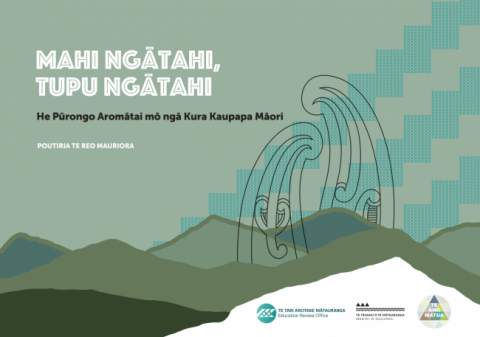Mahi Ngātahi, Tupu Ngātahi, Evaluation Report for Kura Kaupapa Māori
Published: 17 Nov 2021
Central to this report is the common reflection of participating kura kaupapa Māori, that their journeys, both as individuals and as kura whānau, are stories of collective aspirations held within the narrative of establishment, building and subsequent maintenance of their respective kura and kaupapa.
- Audience:
- Māori-medium
- Content type:
- Research
- Topics:
- Kōhanga Reo
- Te Kōhanga Reo









